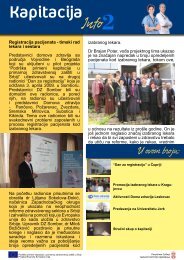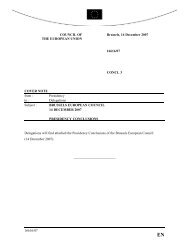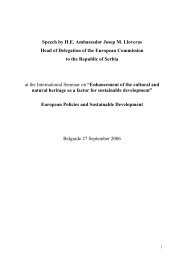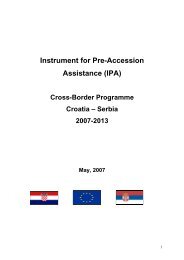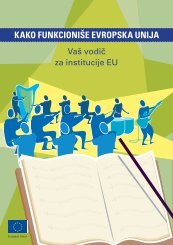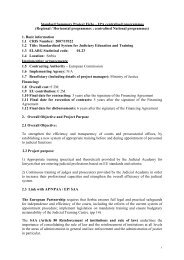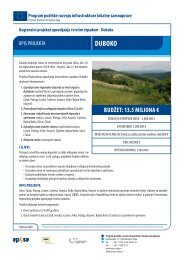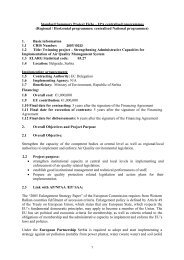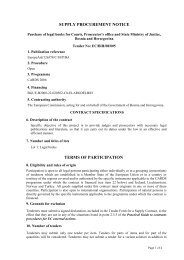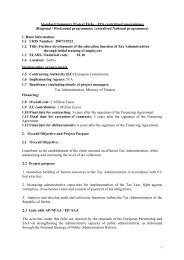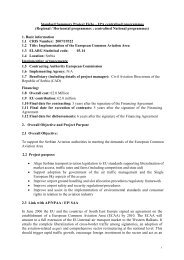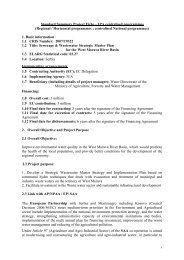YOUR SCHOLARSHIP IN EUROPE
YOUR SCHOLARSHIP IN EUROPE
YOUR SCHOLARSHIP IN EUROPE
You also want an ePaper? Increase the reach of your titles
YUMPU automatically turns print PDFs into web optimized ePapers that Google loves.
102<br />
Your Scholarship in Europe 2008-2009<br />
Lithuania<br />
BASIC <strong>IN</strong>FORMATION ABOUT LITHUANIA<br />
Lithuania is the largest of the three Baltic States. It is bound by the Baltic Sea, Latvia,<br />
Poland and the Kaliningrad Oblast of Russia and Belarus. The capital of the country<br />
is Vilnius. Lithuania has a population of 3.5 million people, 87% of whom are ethnic<br />
Lithuanians, 6.31% ethnic Russians and 6,74% ethnic Poles. The offi cial language is<br />
Lithuanian.<br />
THE HIGHER EDUCATION SYSTEM<br />
In Lithuania, higher educational institutions provide study programmes of varying duration<br />
and levels. The institutions are of two types: universities and colleges – non-university<br />
higher educational institutions. Universities offer bachelors, masters and doctoral<br />
programmes, high-level professional creative artistic activities, post-graduate art<br />
studies and research opportunities. A college is a higher educational institution where<br />
non-university studies prevail, applied research is carried out and (or) professional arts<br />
are developed. Non-university consecutive studies are professional studies intended<br />
for training for a professional career. Since 2007, a Professional Bachelors degree has<br />
been introduced.<br />
University level (fi rst cycle): Undergraduate studies (Pagrindinės studijos):<br />
Undergraduate studies leading to a Bachelors degree (Bakalauras) or a professional<br />
qualifi cation normally last four years.<br />
University level (second cycle): Specialized or Masters studies (Magistras), integrated<br />
studies:<br />
Upon completion of an undergraduate study programme, graduates may pursue specialized<br />
professional studies or studies leading to a Masters degree lasting 1½ to 2<br />
years. Specialised professional study programmes lasting 1-2 years lead to professional<br />
qualifi cations. There are also integrated studies (i.e. combined fi rst and second<br />
cycles): the duration of studies is no more than 6 academic years and no less than 5<br />
academic years.<br />
University level (third cycle): Rezidentūra (Residency), Meno aspirantūra (Postgraduate<br />
art studies), Doktorantūra (Doctoral studies):<br />
Doctoral studies last 4 years and can be pursued after completing the second cycle, integrated<br />
studies, or acquiring equivalent qualifi cations. Upon completion of the doctoral



